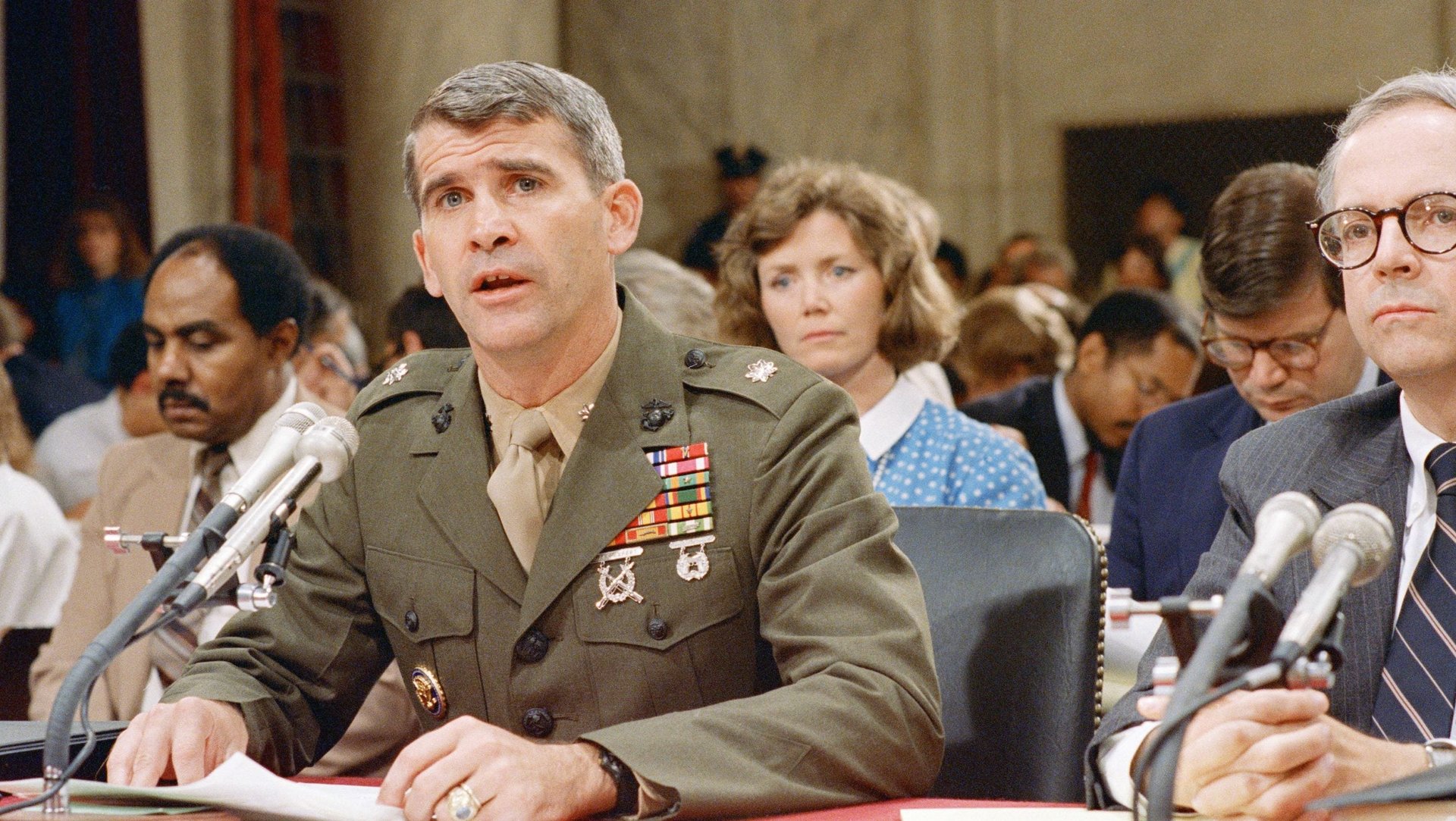The political message behind Oliver North’s new appointment as NRA president
The NRA appointed Oliver North as its new president yesterday, May 7, in a reminder to the rest of the United States: Presidential scandals can be totally overcome—and so can criminal convictions.


The NRA appointed Oliver North as its new president yesterday, May 7, in a reminder to the rest of the United States: Presidential scandals can be totally overcome—and so can criminal convictions.
One of the seminal, divisive US political scandals of 1980s centered around North, who was involved in a covert White House plan to sell arms to Iran, and funnel the money to the Contra rebels in Nicaragua.
Decades later, North remains divisive for US voters and politicians—he’s either a treasonous “villain” who crossed America or a “hero” in the battle against Communism. According to NRA CEO Wayne LaPierre, North is “a legendary warrior for American freedom.”
The Iran-Contra affair, as the weapons deal and investigations afterward became known, “demonstrated the readiness of an ideologically driven administration to violate the law and controls over national security in the pursuit of its policies,” said Sam Walker, a professor of Criminal Justice at the University of Nebraska.
A deputy director on the National Security Council (NSC), North oversaw a secret plan in the 1980s to sell thousands of anti-tank and anti-aircraft missiles to the Ayatollah Ruhollah Khomeini’s government, in exchange for the liberation of US hostages captured in Iran and tens of millions of dollars. Much of the proceeds were diverted to the Contras, North later admitted, who were also suspected of drug-trafficking.
As a backdrop to North’s actions, then-president Ronald Reagan was a staunch supporter of the Contras; he once called them “the moral equal of our Founding Fathers and the brave men and women of the French Resistance” for their attempts to overthrow Nicaragua’s Communist-backed government.
Reagan’s support for the Contras wasn’t mirrored in Congress, however, and particularly not among Democrats. Congress passed a Democrat-written bill in 1982 prohibiting the Department of Defense or the CIA from spending any money to assist the Contras in overthrowing the government, and tightened those rules in years to come.
Americans might never have know about the arms sales if a Lebanese newspaper had not reported them; in 1986 a Republican special prosecutor was appointed by the Attorney General to investigate. In March of 1987, Reagan was forced to admit to “trading arms for hostages” with Iran, despite first denying it and previously calling Iran a terrorism supporter. North first appeared in front of Congress for days of hearings in July of 1987 in his Marine uniform, a televised event that riveted US voters.
After a lengthy investigation, he was convicted in 1989 of “destroying documents, accepting the gift of a $13,800 home security system [from an arms dealer] and abetting the obstruction of Congress”—crimes that could have carried a 10-year sentence. Instead, however, he was fined and given community service. Later, an appeals court heavily weighted with Reagan-nominated judges overturned some convictions; in 1989 all charges were dropped.
North’s boss, John M. Pointdexter, was sentenced to six months in prison, but that sentence was overturned on an appeal. Reagan’s popularity plummeted during the investigation, but he left office in 1989 with the highest presidential approval rating since Franklin Roosevelt.
North, meanwhile, has become a regular on the conservative political talk circuit in recent years, appearing at CPAC conferences and on Fox News.